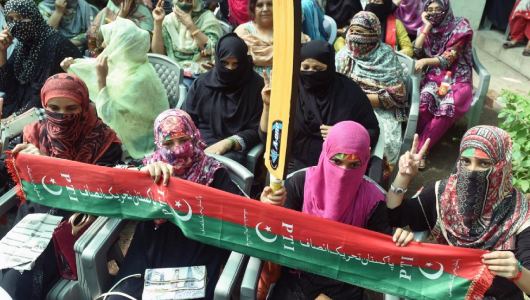PESHAWAR: The Peshawar High Court suspended the Election Commission of Pakistan’s (ECP) decision to revoke the ‘bat’ symbol from the Pakistan Tehreek-e-Insaf (PTI) on Tuesday.
A single bench of the court, presided over by Justice Kamran Hayat Miankhel, heard the PTI’s petition challenging the ECP’s decision.
PTI leaders Barrister Ali Zafar and Barrister Ali Gohar presented the case. Barrister Ali Zafar, commencing his arguments, stated that the ECP lacked the authority to make decisions concerning intra-party elections. He emphasized that the PTI had duly furnished all required documents to the ECP as per legal requirements.
He highlighted that the primary consequence of the ECP’s decision was depriving the PTI of the ‘bat’ symbol, hindering their participation in the upcoming general elections slated for February 8.
Barrister Ali Zafar argued that removing the symbol from a major political party during elections violated fundamental human rights. Citing Article 17 of the Constitution, he asserted that providing an election symbol to a political party was a constitutional right. He contended that nowhere in the world did the ECP have the authority to act as an appellate court.
Expressing his stance on the intra-party elections, Barrister Ali Zafar noted the PTI’s sizable membership of over 8 million without any substantial concerns raised. He labeled the ECP’s decision as arbitrary and illegal.
Regarding the ECP’s assertion that Omar Ayub was not the secretary-general, he argued that even if there were irregularities in appointments during general elections, the elections themselves could not be contested.
He maintained that only the Supreme Court possessed the authority to expel a political party and that the ECP did not hold such power.
Barrister Ali Zafar pointed out the ECP’s directive for PTI to conduct intra-party elections within 20 days, highlighting objections raised by only 14 individuals, none of whom were party members. He urged the ECP to demand proof of PTI membership from the petitioners and emphasized that without the symbol, the PTI would lose reserved seats for minorities and women.
He stressed that December 30 marked the deadline for scrutiny, urging the court to allocate the symbol to PTI.
Upon completion of PTI’s lawyer Ali Zafar’s arguments, the court adjourned the hearing for five minutes.
Following the break, Jahangir’s lawyer, who had filed a petition with the ECP, informed the court that the PTI failed to hold elections on time, leading them to file a petition against the PTI for the delay.
Justice Kamran Hayat noted that the ECP had given PTI 20 days, suggesting that the issue was resolved. He questioned the ECP’s authority to reject the party certificate.
Jahangir’s lawyer Nouman Akhtar argued that the ECP could impose fines for not conducting intra-party elections on time. However, Justice Kamran Hayat pressed for clarity, pointing out contradictory statements made by Akhtar.
Justice Kamran Hayat queried the legal basis for stopping the election when announced, while Akhtar assured the court that the ECP would assess the intra-party elections after receiving details.
Responding to a question about holding elections after the chairman and secretary’s term expires, the Additional Advocate General contended that this case warranted a divisional bench. However, Justice Kamran Hayat clarified that the interim relief was the immediate concern, not the final decision.
The Additional Attorney General, Sanaullah, argued against granting interim relief, fearing it might be perceived as a final decision. Justice Kamran Hayat warned that delaying a decision might render the issue moot.
(Islamabad51_Newsdesk)














